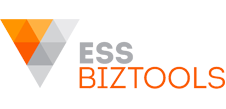Posted: 26 September 2016

Want to turn a $2,000 a year client into a $25,000 client?
The Australian government has introduced legislation to assist innovative companies to be able to raise capital. This legislation, which commenced operations from 1st July 2016, is called the "Early Stage Innovation Company". An Early Stage Innovation Company will normally be a small/medium enterprise, an inventor who, at this stage might not even have a company or an entrepreneur. At present most of these businesses or companies will probably be very small and, if they are paying accountants for professional services and some of them will not even be doing that at this stage, the fees are probably in the vicinity of $2,000.
Companies which aspire to be an Early Stage Innovation Company will be able to raise capital from investors. The investors will receive attractive taxation benefits. They'll receive a 20% tax offset on their investment, up to a maximum of $200,000 for a sophisticated investor and $10,000 for a retail investor. They will also receive a capital gains tax exemption from the end of the first twelve months of their shareholding to the end of the ninth year of their shareholding.
The vast majority of these companies will not have the internal expertise to enable them to successfully navigate the requirements to be deemed to be an Early Stage Innovation Company. This is not just a matter of ticking the box or answering "yes" to various questions. Full supporting evidence will have to be obtained and appropriately filed so that it is available for submission to potential investors and ultimately to the Australian Taxation Office and AusIndustry who are the final arbitrators as to whether a company meets the requirements to be an ESIC.
I've told you what's in it for the investors; they get some taxation advantages, but what is in it for the companies? Well, they're able to raise money from a group of investors who are trying to obtain a larger or better taxation benefit from what they would normally be entitled to. The companies will also be able to avoid the restrictions contained within Section 708 of the Corporations Code which, at this stage, says that the maximum that a company can raise in a twelve month period when the company has not issued a Prospectus that has been approved by ASIC is $2M. An ESIC can exceed the $2M and currently under Section 708, they're restricted to 20 investors in that twelve month period, well they can exceed that, in fact they can go up to 50 investors, which is the limit for proprietary companies.
In the accreditation process for ESIC the company has to satisfy two out of three tests.
The first test which we've called the Provisional Test (because the government didn't give it a name) looks at the age of the company which, in the main, needs to be under 3 years of age although there are some exemptions for companies up to 6 years of age. It looks at the expenditure the company has incurred in the previous year and the income the company has earned in the previous year and asks whether the company is registered on a stock exchange anywhere in the world. If it is, unfortunately the company is not going to be eligible for ESIC.
The Gateway Test has seven subjects. The company needs to earn 100 points or more from these seven subjects. Those subjects include items like:
- research and development expenditure
- has the company participated in an Accelerating Commercialisation Program or
- whether the company has already raised $50,000 or more from arms-length investors.
The Principles Based Test is where a company has to go to if it was unsuccessful in accumulating 100 points under the Gateway Test. There are five questions and these all need to be answered "Yes", however full supporting evidence needs to be submitted as part of the process of answering these questions. These questions are very similar to the questions that are asked in an Accelerating Commercialisation Grant Application and. in that grant program, AusIndustry makes provision for a 500 word response for each of these questions, so I don't believe just answering "Yes" and a few lines is going to be sufficient information.
In the main, companies are going to need assistance from accountants and advisors and other professionals to be able to get through this process.
We estimate that the fee for the Early Stage Innovation Company work that you could charge would be in the vicinity of $1,200 (plus GST) to $2,200 (plus GST); however the ESIC accreditation process is only the beginning. No investor is going to invest $10,000, $20,000, $50,000, or $1M into a company just on the basis that they have achieved the ESIC accreditation. Companies are then going to have to go into the "investment readiness" phase, e.g. market research, budgets, cashflow forecasts, business plan, information memorandum and assistance in making an investment presentation to an investor group. These are the real activities that these companies will then have to be involved in and they will most certainly need assistance from accountants and advisors to be able to put together these very important documents which tell them where they are planning to take this company and what they are going to do with the money that they're trying to raise over the next three years.
In our opinion, these services will generate fees of between $23,000 and $40,000 depending on the complexity of the activities in which the company is going to be involved.
But there is more.... at the end of this process when the company has raised (say) $1M from forty investors, most of these companies are then going to require the services of an internal accountant and chief financial officer. Most of these companies will not be able to afford to employ a fulltime CFO and they probably won't have enough work for a quality CFO, so they'll be very interested to talk to their accountants/advisors about providing a "virtual CFO" service. The other very important role is that these companies are going to have to form Boards of Directors and they'll be looking for an accountant to be on their Board, as finance director so a finance director role is also a real possibility for the companies that you have assisted to go through this ESIC process.
There are also roles like company secretary, internal auditor and in fact, if you want to go down a different stream altogether, you can put your hand up to be the auditor for one of these companies, if you have the appropriate registrations.
Just remember at this stage no one is imposing any rules on who can do this type of work. ASIC is not involved and neither is the Australian Taxation Office. What this ESIC legislation, introduced by the Australian government has done, is to enable accountants and advisors to introduce some new income streams. Just as some of you are worried about the effects of Standard Business Reporting being introduced by the Australian Taxation Office, along comes another segment of Australian government legislation which, we believe, will work very nicely for accountants and advisors.
The new income streams are going to be:
- the ESIC Due Diligence Self-Assessment process
- assisting investors to decide whether they wish to avail themselves of the opportunities of obtaining a tax offset and the capital gains tax exemption; and
- the ongoing business advisory services' work that I've just referred to:
- Virtual CFO service
- Finance Director
- Company Secretary
for these companies.
This is how you will have the opportunity of transforming a $2,000 per annum client into a $25,000 per annum client and it won't just happen in one year. If you are proactive in offering your services to this new emerging class of companies that the government expects thousands of companies to try to take advantage of over the next 12 months you should obtain some interesting "real accounting work" for your team.
This opportunity is not going to last for ever, so you need to get yourself organised now to be able to promote that you're offering these services to your clients and to your prospects.
ESS BIZTOOLS has developed a full product service to assist you to deliver these types of services as part of the ESIC determination process.
A complimentary copy of our article "Self-Assessment for an Early Stage Innovation Company" can be downloaded below.
{snippet free-report}
We will be presenting a webinar, entitled "Want To Turn A $2K Client Into $25K Client?" on Wednesday 12th October 2016 at 11.00am (AEST) and 12-noon (AESDT). Click here to register to attend this free webinar.
Yes, daylight saving is just about to start again and we're going to have these extra times zones around Australia. It creates great fun when you're running webinars to go around the whole of Australia.
Podcast 'Accountant's Minute'
Latest business advisory news for Accountants in under a minute.
Episode 080 - Want to turn a $2,000 a year client into a $25,000 client?
Podcast Link:
As their trusted advisor, can you assist your SME clients with business advisory services?
To download free material click the link below:-
{snippet free-report}
Watch out for the next episode of "Accountant's Minute" or subscribe to the podcast on iTunes for more news, ideas and tips on providing outstanding non-compliance services to SME clients.


























































